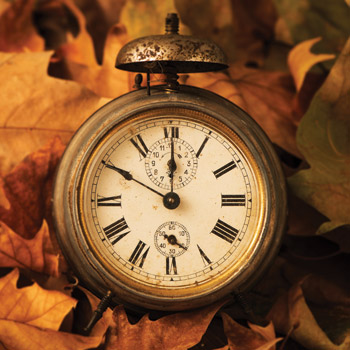The pain of 2020 and the hope for 2021
We have lost so much this past year, but loss also reminds us of our abundant blessings, so many we take for granted daily.
Our nation has been traumatized this year by the COVID-19 virus, economic collapse, racial division, and a polarized electorate, with a national election that hangs in the balance as I write. 2020 has been deeply painful for us all, but undoubtedly for some much more than others. It has not been the year we expected.
As we started 2020, I recalled F. Scott Fitzgerald's vivid stories of the Roaring 20s of the 20th century, where our nation post-World War I had rapid industrial and economic growth, associated with a decade of consumerism, greater independence including women's suffrage, and new cultural and technologic changes. For us in the 21st century, there was at least some perception of optimism, celebration, and enthusiasm that 2020 could also usher in a new decade of prosperity for our country. But we know how the decade of the 1920s ended: with economic collapse and the onset of the Great Depression. It certainly feels like we have lived the decade of the 1920s in this one single year of 2020.
The roaring in of the new year and decade began with great celebration and frivolity, which were quickly snuffed out as the presidential impeachment and the Democratic primaries increased division of our Congress and our nation. Frustration with government and political division hung heavy in the air. Little did we understand that something else far more deadly was also in the air. We had just begun to hear snippets of news about a novel virus in Wuhan, China.
The roar of the new year died down as we entered late February and early March. Then, like a whiff of smoke that signals the coming of a consuming fire, the COVID-19 cases in our country began, first in the state of Washington, and then as an explosion and reverberation of illness and death in New York City. But that was so far away from most of us (right?), until everyone's personal lives changed over a weekend that began on Friday, March 13. A national public health emergency was announced, and we were admonished, “Stay home!”
#AloneTogether was the social media mantra. There was a sense that we were all in this pandemic together. We stayed home expecting everything to return to normal “soon.” But it didn't. Then the economic dominoes began to fall. Many could not afford to stay home. Many employers could not afford to pay their employees for work that could not be done, especially in the service industries. The job losses began and kept on coming.
The virus began its deadly consumption of those on the frontlines of health care, the vulnerable in nursing homes, the incarcerated in prisons, and the line workers in food distribution and manufacturing plants. The virulent attack quickly exposed the shameful underbelly of health disparities. The economic collapse and job losses also exposed the tenuous contract of employee-sponsored health care, now jeopardized by loss of employment. Then we were stunned by the video documentation of George Floyd's suffocating death at the hands of law enforcement and the lynching of Ahmaud Arbery as he jogged in his neighborhood. These videos, along with others, exposed the destructive and devastating festering wound of racism in our society that never seems to heal.
As the fluctuation of the virus continued state by state and roared even more ferociously in July following the Independence Day holiday, more of our local communities began to finally understand that they too were vulnerable. Nonessential workers, those working from home, and otherwise mostly healthy people with few chronic diseases began to personally know people in their own social or occupational circles diagnosed with COVID-19 or, worse, hospitalized or dying of the devious virus. The virus was getting closer and more personal. Even so, despite our public health officials' and infectious disease specialists' numerous pleas for months to wear masks and socially distance ourselves, people have brazenly continued to ignore their advice, putting themselves and others at risk. We know the sinister virus does not care. It has no partiality and only seeks an unwitting host to wreak its destruction.
We are learning the lessons of the pandemic the hard way, with disease, death, and potential disability of millions of our fellow Americans. C.S. Lewis wrote, “God whispers to us in our pleasures, speaks in our conscience, but shouts in our pains: It is His megaphone to rouse a deaf world.” The question is are we listening? It would appear that many are not, at least in our country. They are not listening to the CDC, to the scientific community, or to our own internal medicine hero, Anthony Fauci, MD, MACP.
As we head toward winter, with the curve only flattened down to 35,000 to 40,000 cases per day and now back on the rise, it would appear there will be more pain. Marcel Proust famously wrote, “Illness is the doctor to whom we pay the most heed; to kindness, to knowledge, we make promise only; pain we obey.” Will our country finally come to grips with the pain of this deadly virus and say, “Enough?”
More than 7 million Americans have been infected with the novel coronavirus, and we still do not know their long-term medical sequelae nor the ongoing care these survivors may require. We have suffered more than 200,000 deaths from COVID-19, with more to come. In a study from Penn State University published in the Proceedings of the National Academy of Sciences of the United States of America in July, associate sociology professor Ashton M. Verdery, PhD, and his colleagues concluded that for every COVID-19 death, approximately nine surviving Americans will lose a grandparent, parent, sibling, spouse, or child, indicating that almost 2 million Americans are already in mourning for a close relative. There will be more collective grief as we finally end this historic year.
We are in desperate need of an intermission from the COVID-19 saga, the political division, and the civil unrest of 2020. Thanksgiving and the coming holiday season will hopefully bring us needed respite and time to pause, reflect, and celebrate. We need to regroup, recalibrate, reassess, and remind ourselves of what is really important in our lives, like faith, family, and work. We have lost so much this past year, but loss also reminds us of our abundant blessings, so many we take for granted daily, like food, clean water, a roof over our heads, good health, and meaningful work.
We have gone through life-changing events this past year. There's no “going back to normal,” to the way things were. Life is different now. We have the scars to prove it. We cannot unsee our vulnerability, nor the fragility of our lives physically, emotionally, and economically. The pain of 2020 has brought many of us to our knees, where we can see things differently, and the only place to look is heavenward. On our knees is a good place for us to start anew in thanksgiving.
The holidays are also opportunities to look forward to the future possibilities to come in the new year. As we look to the birth of 2021, we will put the labor pains of 2020 behind us, and we will embrace, nurture, and cultivate the good seeds from 2020 to include:
- addressing the exposed weaknesses in our public health system and safety net resources,
- creating new ways to resolve health disparities,
- confronting and correcting systemic racism,
- building on the amazing technologies of telehealth, Zoom, and social media as we broaden our reach and influence for good,
- benefiting from the miraculous speed with which science has been able to identify and rapidly diagnose this novel coronavirus and very soon have several new vaccines, and
- addressing issues of climate change and making our planet and world healthier.
We will not start 2021 with the complacent naivety of Jan. 1, 2020, but we are now armed with knowledge, understanding, and hard lessons learned from this past year. 2021 will be filled with new opportunities and challenges. As internal medicine physicians, we will have much work to do. Let us all work together to create kindness, understanding, and healing in our country. In the words of the late Supreme Court Justice Ruth Bader Ginsburg, “Fight for the things you care about, but do it in a way that will lead others to join you.” I hope you will join me in thanksgiving for our many blessings and in our work together through the College on the things we care about: our patients, our profession, and the health of our country and the world.




